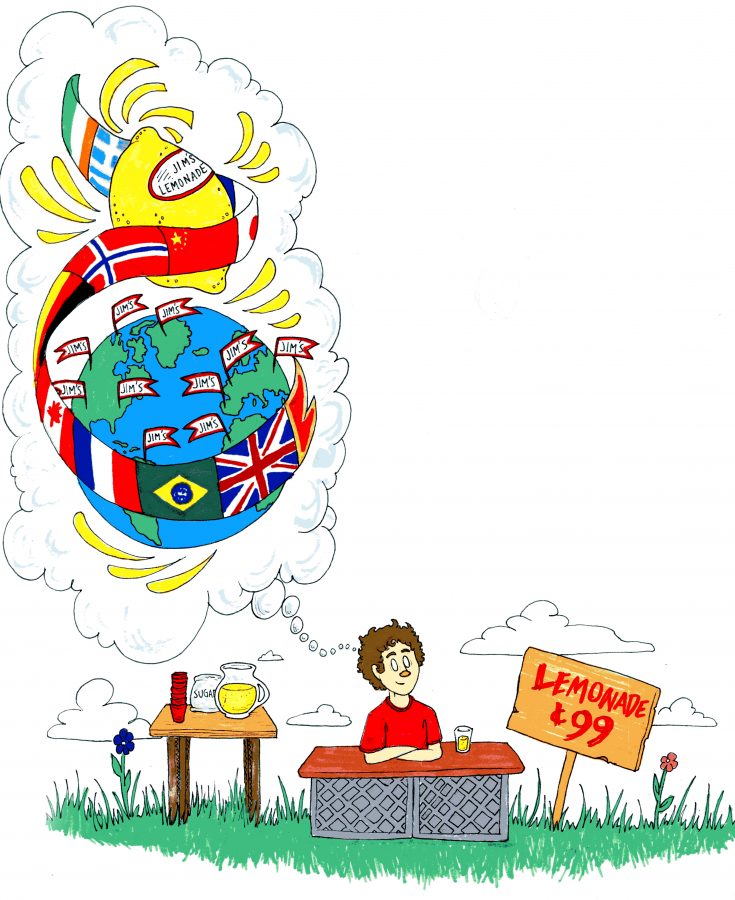Editor’s Note: The Daily Texan recently sat down with Robyn Metcalfe, director of The Food Lab. The Food Lab is based in the School of Human Ecology, and it provides awareness of food issues, encourages and motivates students to engage with innovative food systems research and helps support startups that leverage university research.
The Daily Texan: Could you tell us about how you came up with the Food Lab concept and your thoughts when you first started?
Robyn Metcalfe: The Food Lab is a project currently located in the College of Natural Sciences within the School of Human Ecology. It’s really a project that engages broadly across the whole campus within a wide range of disciplines including history, engineering, architecture, anthropology, American studies and the sciences. It really engages the university in a conversation about the future of food. We have a couple of projects. One is the food challenge prize that took place Feb. 14. We are also doing some research on the relationship of cities and food and how food travels around the world — food logistics. We have a website and online magazine related to that.
I moved here to Austin with my husband who’s also at UT [Bob Metcalfe, mentioned in Nick Spiller's column] about four years ago from Boston to Austin. My degree is in history with an emphasis on food history. So I’ve been involved in the food world for the past 30 years or so. So I’ve been involved in this for a long time, way before it was a popular subject, broadly speaking. And in one particular period of time there, I ran a working farm that was located in the state of Maine, and we raised heritage breeds of livestock — this was in the 1990s. So I’ve been involved in everything from cooking to developing products to starting farm ventures, looking at it from a wide variety of websites.
DT: When it comes to healthy eating and sustainable food initiatives, popular media tends to focus only on organic and natural food. But the Food Lab has a broader focus. Could you talk about that broader focus?
Metcalfe: We really have an academic call, a systemic approach to food. It really is a big system. A successful, sustainable food system includes everything from soil, the inputs, the growing of it, the distribution of it, the packaging of it, the transportation of it, the formulation of it. And really any one part considered alone limits the opportunity for improvement. You really need to see the relationship between all these things, including human beings and their desire and love and identity and connectivity to food itself. You can have a wonderful idea for improving the food system and ignore consumer behavior or an individual’s memory and associations and emotional attachment to food. So it’s really the ultimate blend of art and science. It's the ultimate emotional, scientific, artistic pieces all coming together, and they need to come together to be really sustainable. So we’re not an activist organization. We don’t think you should only buy a certain type of food, or something is good and something is bad. We really are a conversation starter, not the answer, not the solution. We don’t want to step away from coming to a conclusion, but in the lab we’re really in an experimental thinking phase.
DT: Do you have any main questions that guide your research?
Metcalfe: Our research is focusing on the whole idea that we make enough food but we don’t really get it in the right places. Some of the food isn’t in the best form. So waste is the current focus of the research in terms of looking at food distribution. We really feel like the storage and distribution area from a research point of view is really ripe for some new ideas, some new innovations.
In the prize itself we’re being more even-handed. We really want to encourage a system consideration of food innovation. That’s why we consider the growing, storing, packing, eating and the actual healthy food itself. That’s why we have people in the competition itself looking at insects. There is a swarm of people looking at improving our options for protein by developing new protein sources such as crickets for example. Would you eat crickets by the way?
DT: We've never ordered them.
Metcalfe: Would you be open to eating them?
DT: Maybe one day.
Metcalfe: I think what’s most exciting about food innovation is that Austin has been in the mind of many people as a very cool place for food with all its food trailers, for example. And this rising crop of new innovative chefs are gathering lots of attention. We really feel that Austin is on the verge of being known as a major player in food entrepreneurship and food innovation in general, including the food trucks and the chefs, but moving to a new level of highlighting how many people are trying to start new businesses and come up with new innovative ideas in the food space. So it would join in the ranks of Brooklyn, Silicon Valley, Napa Valley and we would have a hot spot here of food entrepreneurs.
DT: How can students get involved in the Food Lab?
Metcalfe: If you’re curious about food, the Food Lab would be a great place to meet people who have built successful food businesses and see a range of people who are really enthusiastic about their ideas. You may never have thought that inventing a better cabbage or about 3D printing your food, or you might have a robot on your counter top that could produce your food in the future. Who knows? Students could intern or start their own business, so the Food Lab should ignite the imagination of a lot of students.





















